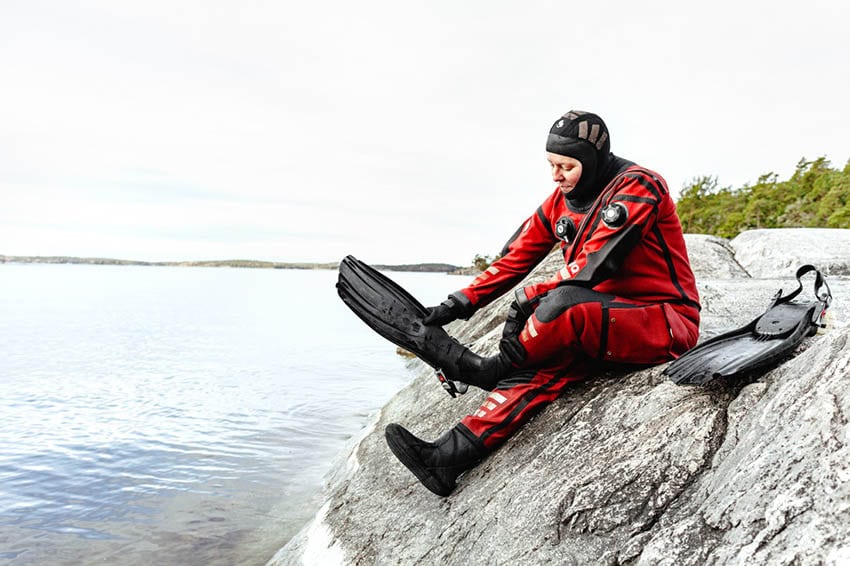The doctoral candidate defended their thesis early in 2023, with two members of the assessment committee approving the thesis and one dissenting. Subsequently, the Ethics Review Appeals Board, ÖNEP, received several submissions reporting that the thesis contains sensitive personal information such as religion and political opinions, but does not have ethical approval.
The main supervisor and the head of department had concluded that ethical approval was not required because the thesis work began in 1999, while the Ethical Review Act did not come into force until 2004. The author also believes that the sensitive personal data that was used had already been made public by the individuals themselves, and therefore would not require ethical approval.
Issues raised have been changed
However, Önep has concluded that the project has changed so much in terms of the issues raised that the research is considered to have started after the legislation came into force. ÖNEP also found that the thesis contains sensitive personal data that had not been made public by the individuals concerned, including legal verdicts and participant lists from meetings. ÖNEP has therefore now filed a criminal complaint for violation of the Ethical Review Act.
In its decision, ÖNEP states clearly that doctoral candidates are in education and therefore cannot be held formally responsible. Instead, it is often the supervisor who is the responsible researcher and the head of department who has been delegated the role of entity responsible for research by the higher education institution.
”Extremely serious flaws”
One of the members of ÖNEP announced a dissenting opinion on the decision as a general protest against the prosecution procedure, which he believes has proven to be in conflict with the overall purpose of the law.
In substance, however, he was in agreement. Instead, he wrote that ”there is reason to level very serious criticism at the entity responsible for research ” due to ”extremely serious flaws” regarding matters such as ”ethical considerations during the thesis process and before the thesis defence”.
Accountability of entity responsible for research increased
When the Ethical Review Act was updated in 2020, the responsibility of the entity responsible for research to ensure that the required ethical approvals are in place was clarified. If this role has not been delegated, which is often to head of department level, the responsibility remains with the vice-chancellor or equivalent. In the preparatory work to the legislation, this was compared with the criminal liability that an employer has for systematically preventing work environment risks.
In a previous case, concerning a doctoral thesis at Örebro University, where the vice-chancellor identified the supervisors as responsible, the prosecutor then found that no formal delegation of responsibility had been made. However, the prosecutor closed the preliminary investigation on the grounds that it was not possible to prove ”that any individual person acted carelessly in such a way and during the time foreseen for criminal liability”.
Responsibility not clear
At Lund University, the responsibility for signing ethical review applications was delegated to the heads of department in 2004, but it was not until 2023 that the university clarified what this responsibility for ethical approval entails, says Johannes Persson, dean of the humanities and teleology faculties, who is impacted by ÖNEP’s latest charges.
He says that extensive work is underway to ensure that department heads, researchers and doctoral candidates have knowledge of the Ethical Review Act, as well as to make individual study plans a better control instrument during thesis work.
“We can see that ÖNEP has found that the doctoral project in question changed so much over 24 years that it can be concluded that a new project started after 2004. That was unclear to us before.”
“We can see that ÖNEP has found that the doctoral project in question changed so much over 24 years that it can be concluded that a new project started after 2004.”
Johannes Persson
He also points out that many people have been involved in the project over the years, and that it is therefore not obvious where the responsibility should lie.
”The law is dysfunctional”
The main supervisor tells Universitetsläraren that they were given this role when they came to Lund University as a professor in 2009. They say that it wasn’t until around the time of the Macchiarini scandal that people within humanities realised how the Ethical Review Act affected them, and work to improve knowledge at the university began.
Having been responsible for doctoral programmes for a number of years, they were then in contact with the university’s lawyers, whose interpretations of the law varied.
“I don’t want to place the blame on any manager or lawyer, because the situation was not clear. It is the law that is dysfunctional,” says the supervisor, who hopes that the case will lead to better legal guidance.
As Universitetsläraren has reported previously, a review of the Ethical Review Act is ongoing.
















